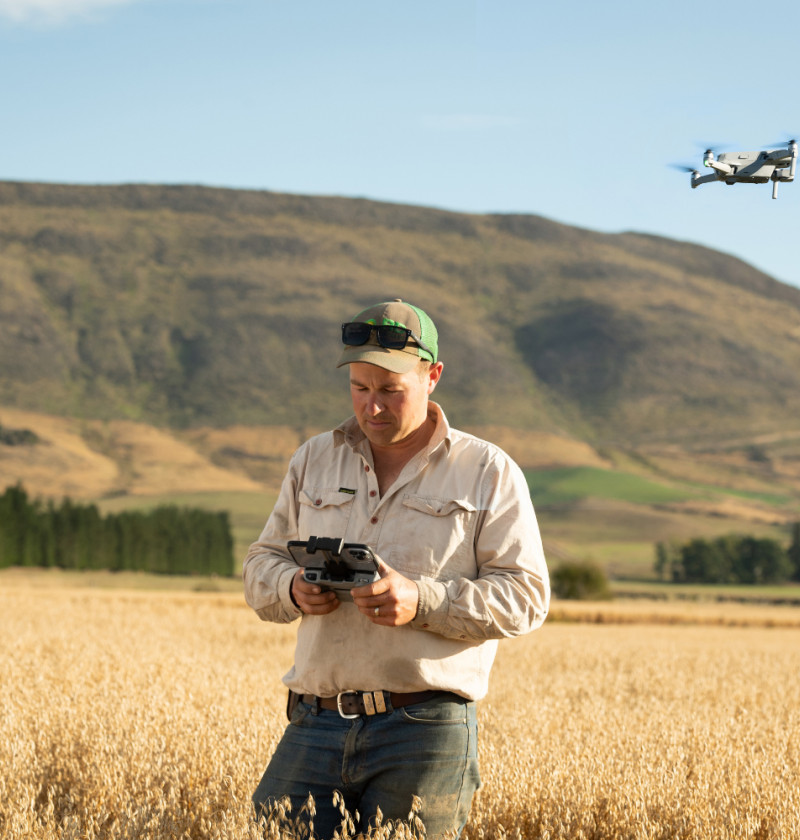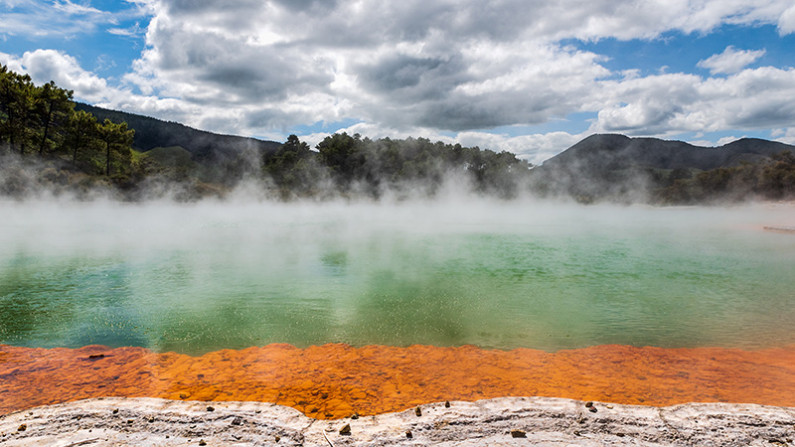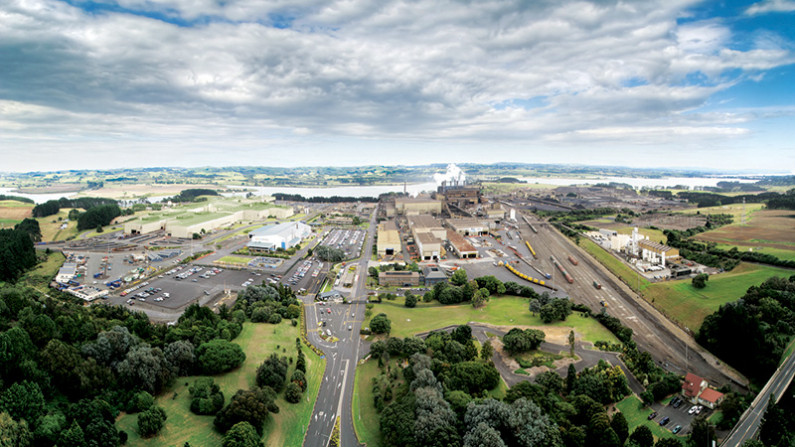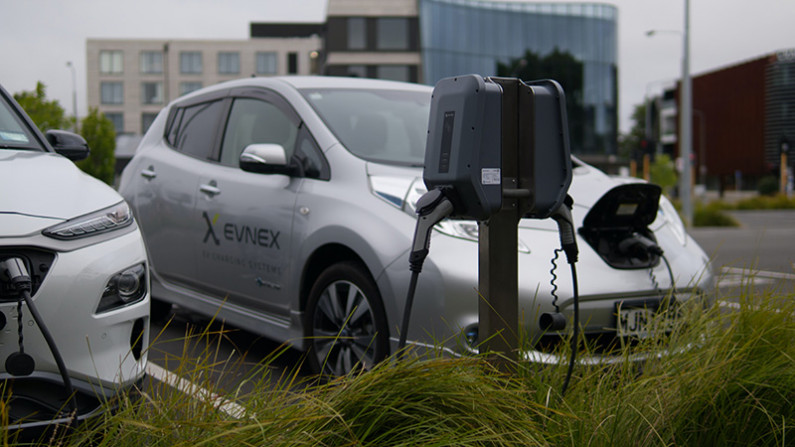Chapter 8 Research, science, innovation and technology


Download a PDF version of this chapter [PDF, 810 KB]
Research, science, innovation and technology (RSI&T) provide the knowledge and insights to transform Aotearoa New Zealand to a low-emissions economy that provides economic prosperity and improved wellbeing for all. Good access to new knowledge, technologies and processes provides new ways of doing things to support change and help communities, Māori, the Government and businesses remain resilient over time.
RSI&T activity accelerates the transformation of the economy by enabling development and deployment of innovative low-emissions solutions into industries and sectors. It enables the growth of new sectors, market opportunities and high-value jobs, and the transformation to a prosperous low-emissions economy in an equitable way.
He Pou a Rangi – Climate Change Commission (the Commission) identified innovation as one of three key pillars for reducing emissions and highlighted the importance of prioritising low-emissions research, science and innovation to our transition.
In 2050, Aotearoa will look markedly different to today. New high value, low-emissions sectors and jobs will emerge and problems will need to be solved that have not yet been identified.
Research, science, innovation and technology (RSI&T) can enable the behaviour change we need to meet our emissions reduction targets. New, more convenient, or cheaper ways of doing things can make the switch from high-emissions approaches to lower ones easier for communities and sectors. Research also provides critical knowledge about what approaches we can take to better inform decision making and behaviour.
Aotearoa will need a flexible, adaptive approach to identifying and supporting different types of innovation across multiple sectors. It is not always clear which innovations and behaviour change will deliver the greatest emissions reductions. We need to invest in the fundamental science and technology that will underpin future innovation, but we also need to be prepared to let some innovation fail, while rapidly increasing investment in approaches that prove most effective.
The private sector accounts for over half of RSI&T activity in Aotearoa and is an important partner in the research, science and innovation (RSI) system. Private sector entrepreneurs and innovation are critical to adopting new knowledge, technologies and practices by managing consumer demand and ensuring new innovations are easy to use, readily available and rapidly adopted.
Cutting-edge science expertise and innovative firms give Aotearoa an advantage in designing new, low-emissions technology, establishing frontier firms and new sectors. Exporting our innovations to the global green economy provides an opportunity to grow our economy and impact other countries’ emissions as well as our own.

Aotearoa New Zealand’s physical isolation from the rest of the world means that aviation will remain a critical way to stay globally connected. The aviation industry’s current reliance on fossil fuels presents a particular challenge for our national carrier, Air New Zealand.
Sustainable aviation fuel – a fuel that can be made from non-fossil fuel sources such as woody biomass and materials that will otherwise go to landfill – could potentially reduce lifecycle carbon emissions by more than 80 per cent compared to traditional jet fuel. It is critical for decarbonising long-haul aviation travel, and the tourism and export industries that depend upon it.
Air New Zealand and the Ministry of Business, Innovation and Employment are inviting leaders in innovation to demonstrate the feasibility of operating a sustainable aviation fuel plant at scale.
Transformative innovation is often disruptive and difficult to manage within existing sectors or structures, but there is no ‘do nothing’ option. Given the scale of the challenge globally, disruptive change will be coming whether Aotearoa is ready or not. This is due to factors like changing consumer preferences, international regulation or new technologies and ideas developed overseas.
The Government is positioning Aotearoa for resilience through these changes while providing the basis for new opportunities.
Driving transformative change through the RSI system will unlock the following opportunities:
The RSI system supports our communities and businesses to adapt to a new, low-emissions future by:
New knowledge and technologies that we develop here in Aotearoa can be exported to a world that is also transitioning to a low-emissions economy – building a future that is sustainable and productive.

The Endeavour Fund generates new knowledge that supports sectors to transition to a low-emissions and climate-resilient economy, including through the development of new energy opportunities and new materials.
This includes the GNS Science-led Geothermal: The Next Generation project which explores new ways to extract geothermal energy at greater depths. The knowledge developed will deliver new options to significantly reduce emissions for the energy sector and will provide vital regional perspective and opportunities for iwi and regional development.

Producing steel currently relies on a high-temperature chemical reaction between coal and iron ore, emitting large quantities of carbon dioxide. The process has largely remained unchanged since the Industrial Revolution.
Researchers at the Robinson Research Institute have developed a novel technology which uses hydrogen instead of coal to produce iron and steel, a breakthrough step in the transition to a climate-resilient and low-emissions future. This research also addresses Aotearoa-specific challenges for the manufacture of low-emissions steel due to the unique composition of our indigenous iron sands.
The project was kickstarted in 2019 with a NZ$6.5 million research grant from the Endeavour Fund, to support the development of this new chemical process. The Robinson Research Institute is now collaborating with Wellington UniVentures and New Zealand Steel to accelerate the development of a pilot-scale reactor at New Zealand Steel’s Glenbrook site.
The RSI system supports the emergence of new initiatives, companies and sectors which can unlock new opportunities to reduce emissions faster, more cost-effectively, or in a way that enables further growth opportunities. This includes supporting start-up companies that want to take novel technology and practices to market or disrupt the status quo.

The Orion Energy Accelerator is a 2021 partnership between Canterbury electricity lines company Orion, the Ministry of Awesome – a start-up-support organisation, and Ara Ake, an organisation focused on future energy development.
The accelerator was a 10-week mentorship programme open to individuals and start-up companies, producing innovative ideas across a range of energy sectors, including smart grids, e-mobility, electric vehicle charging and energy storage. It also secured a partnership from Ara Institute of Canterbury, EY and Wynn Williams to aid the start-ups during the programme.
The accelerator provided support for 10 start-ups, to validate their ideas and progress the start-ups towards commercial readiness. Two start-ups are working with Orion: one will save millions of dollars in network upgrades and the other is a promising solution to energy poverty.
Mechanisms such as the innovation grants programme and Research and Development Tax Incentive [R&D Tax Incentive website] – which supports businesses to undertake research and development, including in relation to low-emissions technology and change – stimulate innovation across the economy.
New technology and innovation provide opportunities to accelerate our transformation. Callaghan Innovation – Aotearoa New Zealand’s innovation agency – partners with ambitious businesses of all sizes to provide innovation support services. This includes a cleantech mission that aims to accelerate cleantech innovation and commercialisation.
The RSI system supports the emergence of new businesses and sectors leveraging opportunities for Aotearoa through the start-up support programme. The programme provides capability building mechanisms for start-ups, including Founder Incubators and Technology Incubators [Callaghan Innovation website].
It also supports access to capital for start-ups through New Zealand Growth Capital Partners. This includes providing support for initiatives such as the CreativeHQ Climate Response Accelerator.
The RSI system also provides targeted support for sectors, including:
The Government is positioning Aotearoa to be resilient to the global move to lower emissions and to seize new opportunities this innovation provides.
This will need a policy and regulatory environment that:
This requires coordination beyond RSI&T across industry sectors and a wide range of government agencies and settings.
The Government has two key actions to accelerate emissions reduction through:
To accelerate emissions reductions, the Government is working towards establishing climate innovation platforms to coordinate action on key challenges and take opportunities in our shift to a low-emissions future. The platforms will improve the competitiveness of our existing sectors, grow new ones, and reduce emissions simultaneously.
Climate innovation platforms will be:
This all-of-government approach will use a wide range of tools and approaches including proactive policy, regulatory settings, and RSI tools to ensure that ideas from here and around the world can be implemented quickly.
The nature of individual platforms and exact mix of Government support (including but not limited to research and development support, international partnerships, training and skills development, and sector regulatory and policy changes) will depend on the particular sector and challenge. However, platforms will be encouraged to use the full range of roles and policy tools and approaches that the Government has at its disposal.
The Government will take a portfolio approach – in which a range of initiatives are pursued at the same time, and support is boosted for the most promising ones – to adapt to changing priorities and levels of uncertainty as Aotearoa progresses to a low-emissions future.
The portfolio will engage across all areas of the economy to develop future-focused platforms. This will involve working closely with the private sector, including supporting platforms proposed by the private sector, to ensure the platforms have an impact.
To coordinate our climate change response and accelerate our transition by removing barriers to the development and adoption of new ways of doing things, the Government is looking to:
By way of example, a platform could be focused on reducing the embodied emissions – emissions associated with the manufacture of materials – within the building and construction sector. Opportunities to help reduce embodied emissions, and tools and approaches that could be used by government to promote those opportunities include:
Each of these opportunities are at different stages, from internationally established to emerging. They will require different government tools and approaches to support their impact over time. Sector-wide initiatives – including pricing and regulatory signalling – will support the transition away from high-emissions practices and materials. Work to inform and train local authority regulators, trade agreements to secure the supply of new materials, and skills development for the building and construction sector will also support our transition.
A range of existing initiatives will be scaled up and reoriented towards tackling the climate challenge and accelerating our transition to a low-emissions economy.
The RSI system funds universities, Crown Research Institutes and international partnerships to conduct public good research. This research is focused on developing new knowledge and technology to help existing sectors move to low-emissions. It also provides foundational knowledge and technology to underpin the development of new net-zero sectors.
As at March 2022, approximately NZ$800 million is invested in projects generating new knowledge about:
To reach our 2050 targets and create a prosperous low-emissions economy, the level of research activity in Aotearoa needs to continue to increase. We also need to reorient and optimise our science system to increase the impact of research into climate change, emissions reduction activities and low-emissions technologies - and improve the flow and adoption of knowledge and technology to sectors and communities.
The Government will reorient the RSI system through Te Ara Paerangi – Future Pathways programme, which will set research priorities to address the challenges that we face. The objective of the programme is to create a modern, future-focused research system which is adaptable, resilient to changes and connected – to itself, to industry, to public sector users of research, and internationally. The programme will consider:
These priorities will influence how existing programmes and funding will help us tackle climate change challenges, including:
The programme will work closely with Māori, guided by Te Pae Tawhiti – the whole-of-government response to the Wai 262 claim which looked at the Government’s role in relation to mātauranga Māori – to identify how our science system can best support Māori and mātauranga.
The Ministry of Business, Innovation and Employment’s Vision Mātauranga policy enables the science and innovation potential of Māori knowledge. Mātauranga Māori offers insights and solutions to climate change issues that reflect a holistic worldview. The contribution mātauranga Māori can make to the RSI system will be important for meeting our emissions budgets and 2050 targets, as well as creating a low-emissions economy for all.
To enhance the role of mātauranga Māori and reflect Māori aspirations in the RSI system, the Vision Mātauranga policy will be expanded to assist Māori to make future investments in RSI&T. It will be co-developed with Māori to achieve outcomes that are driven by and for Māori, and that reflect Te Tiriti o Waitangi.
To accelerate our transition the Government is developing proposals to scale up existing policy initiatives. This will support sectors and communities to mitigate and adapt to climate change, as well as provide the foundations for a future low-emissions economy in Aotearoa.

Chapter 8 Research, science, innovation and technology
May 2022
© Ministry for the Environment